stereotypes
Navigating Relationship Conflict With Astrology Humor
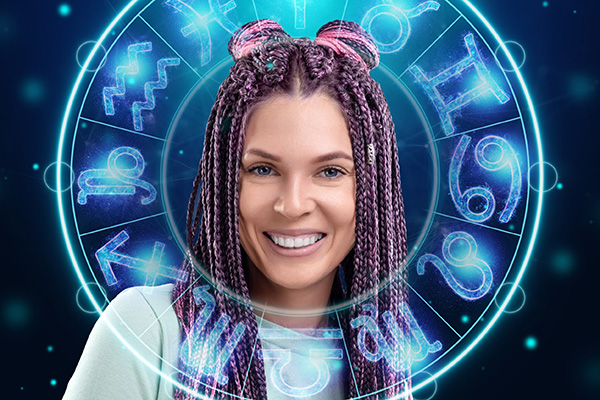 Navigating a lover’s quarrel can range from simple and fleeting disagreements to complex and time-consuming arguments and feuds.
Navigating a lover’s quarrel can range from simple and fleeting disagreements to complex and time-consuming arguments and feuds.
In the midst of such challenges, a sense of humor can sometimes be a good thing, providing a quick relief valve and a broader perspective on the situation. A little humor can even prevent us from saying or doing things we later regret!
A great source of humor is our zodiac sign. Understanding how our partner’s sign and our own might handle relationship conflict differently can actually help one see the funny, lighter side of even a serious disagreement.
Throughout my years as a psychic reader, I’ve certainly noticed the humor in how different clients handle arguments with their partners based on their signs.
Different zodiac signs have different communication styles. Knowing your partner’s style and your own can help you appreciate the differences and find humor in miscommunication. Each sign also has its flaws, and recognizing them can help you approach conflict with a greater sense of humor. Instead of seeing flaws as insurmountable problems, see them as opportunities for growth and laughter.
The Deeper Meaning Of Color Stereotypes
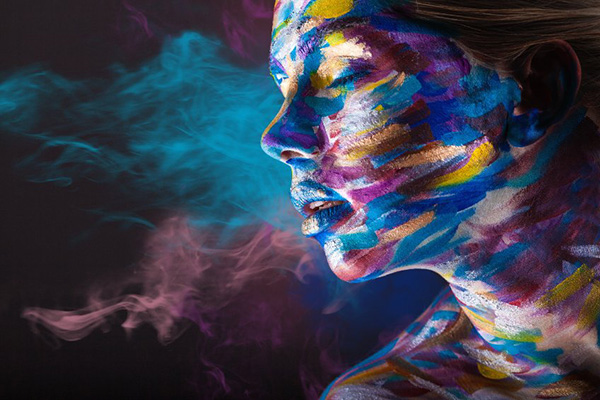 Have you ever heard the expression someone “talks a blue streak?” It refers to a person who talks rapidly and non-stop. But why use the adjective blue? I suspect it may originate from the metaphysical tradition of the color blue being associated with speaking one’s truth (throat chakra) and creative expression. People who gravitate towards this color are often creatives or performers, such as designers, fine artists, singers, dancers, and so on.
Have you ever heard the expression someone “talks a blue streak?” It refers to a person who talks rapidly and non-stop. But why use the adjective blue? I suspect it may originate from the metaphysical tradition of the color blue being associated with speaking one’s truth (throat chakra) and creative expression. People who gravitate towards this color are often creatives or performers, such as designers, fine artists, singers, dancers, and so on.
Communicating succinctly is the most powerful way we can make a connection with others beyond our subliminal energy connections with everyone around us. An over-abundance of words, however, translates into a lack of trust on the speaker’s part that she is not accepted by others, be it family members, coworkers, friends, or stranger she encounters along her life path. Speaking clearly and concisely is an art.
The color red also holds a fascination for me, as I perceive it to be a color that is so amazingly misunderstood. Red is generally interpreted as the color of anger, such as “I was so mad, I was seeing red.” Red is also used to denote danger in road signs and red cars are said to be associated with speed and aggressive driving.
But the color red also has many positive symbolic meanings in different cultures, including about passion, excitement, love, vigor, health, life and even spiritual zeal.
Another brilliant color that is often misrepresented is black. Once again, it is generally seen as a color related to depression, sadness, gloom, negativity and evil. In my view black stands out as a harmonious hue. If we see it in a positive light, black can be considered as a sharply defined, elegant color. It is symbolic of power, mystery, and sophistication. No one can deny the glamour of showing up to a dinner party in a smart little black dress or a tailored black tuxedo.
How To Be A Good Friend
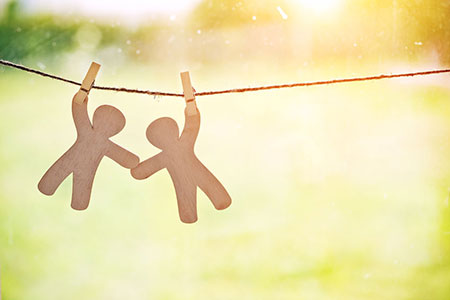 I just read a blog written by a spiritual person feeling angry and lonely. She had reached out to a trusted friend, but the friend only wanted to talk about her own problems. And when she did pay some attention to her plight, the best the friend could offer was to be judgmental and unsympathetic. The author then also reached out for support on a social media group for spiritually aware people. Again, all of the members did the same thing her friend did: they judged!
I just read a blog written by a spiritual person feeling angry and lonely. She had reached out to a trusted friend, but the friend only wanted to talk about her own problems. And when she did pay some attention to her plight, the best the friend could offer was to be judgmental and unsympathetic. The author then also reached out for support on a social media group for spiritually aware people. Again, all of the members did the same thing her friend did: they judged!
The woman was having problems with her abusive neighbor and many people on the forum were giving advice for her to leave. They told her to move, find a better place to live, relocate. “Moving is 100% your choice,” one person commented. The first thing I thought was no, it isn’t. This particular woman, for example, had bought the house and had put a lot of money into renovating the house. She would need to sell, at a time when not many things are selling, and possibly suffer a significant financial loss.
Some even told her to get more exercise, so that she can relax and focus on other things. They told her she was responsible for her own choice of reactions and feelings in the situation. The only insensitive, stereotypical thing they didn’t say was to take a breath and calm down. Don’t you just hate it when someone says that? It does everything, but calm you down!
The people responding, in their judgment, needed to feel superior. It was about them, not her. Her responses were defensive, understandably. I felt by her response, they made her feel more lonely. Poor woman.
Digging Deeper Into The Signs Of The Zodiac
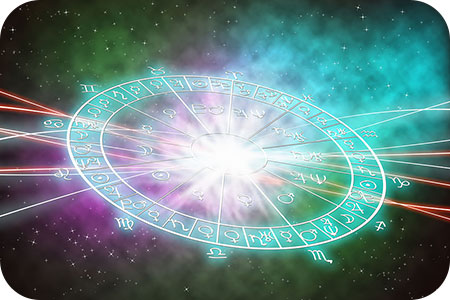 Astrology fans are often familiar with the general traits of the twelve signs of the Zodiac. For example, we may know our best friend is headstrong because she is Aries, or we might have a moody Cancer parent, or a wisecracking Sagittarius coworker. But how well do we really know the deeper characteristics of each sign?
Astrology fans are often familiar with the general traits of the twelve signs of the Zodiac. For example, we may know our best friend is headstrong because she is Aries, or we might have a moody Cancer parent, or a wisecracking Sagittarius coworker. But how well do we really know the deeper characteristics of each sign?
Each sign has, for example, a hidden side – and it is not just signs such as Gemini or Pisces, which we often associate with duality. Plus, each person’s natal or birth chart is unique! No two charts are alike, just as no two people are exactly alike.
The Fire signs are stereotyped as confident go-getters, who know exactly what they want from life and are born leaders. However, Aries, as the first sign of the Zodiac, seems confrontational to some, but can be sensitive and even childlike. Think of the charging ram versus the meeker sheep. Leo the lion comes across as egotistical and uncaring, putting everyone else below her, but she is also the protector of her pride and makes an excellent parent and confidante. And Sagittarius is literally of two worlds: the horse (animal) side symbolizing wild abandon and humor, and the human, philosophical part which is serious-minded and appreciates deeper meaning.
Movie Psychics: Villains, Freaks, Heroes
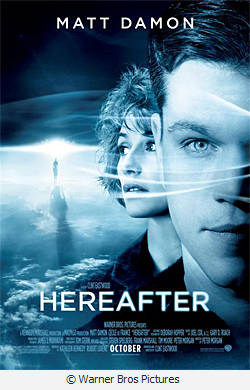 Psychics and mediums in the movies are traditionally depicted as shrewd, flaky or simply evil. To this day it remains the exception to the rule to find a decent film or television show that genuine psychics will be able to relate to. Very few films in the archives offer a reasonably authentic representation of the ordinary psychic’s true life experiences.
Psychics and mediums in the movies are traditionally depicted as shrewd, flaky or simply evil. To this day it remains the exception to the rule to find a decent film or television show that genuine psychics will be able to relate to. Very few films in the archives offer a reasonably authentic representation of the ordinary psychic’s true life experiences.
The range of stereotypical stock characters in film is almost never-ending: from the typical dumb blondes and computer-hacking geeks, to corrupt Catholic priests, zany black cops, Las Vegas mobsters, flamboyant gay men, conspiring politicians, sex-obsessed teenagers and bombastic corporate executives with fat cigars.
Of course, psychics and mediums also make the perfect stereotype. We are ideal to be cast in the role of the satanic villain, or merely as an odd source of comic relief. For example, Whoopi Goldberg’s madcap portrayal of Oda Mae Brown, the fraudulent medium in Ghost (1990), was so well-received after the film’s release that she won a Golden Globe for her hilarious antics, as well as an Academy Award!
Hollywood relies on these stereotypes to increase box office success. Portraying misrepresented characters in a one-dimensional manner has a much wider audience appeal. Sadly, it also leads to ignorance, misconception, prejudice and discrimination. Continue reading